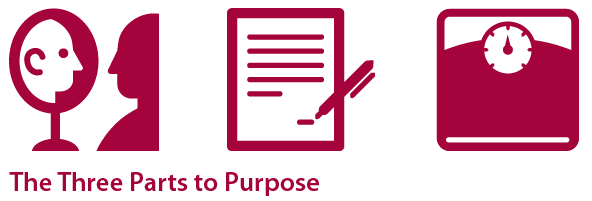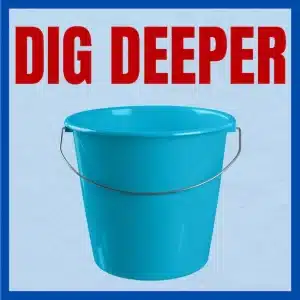
Your purpose is your benchmark for decision-making in your life and business. Here we look at three things to help you Define your business and life purpose.
Choose or Not
Whether we choose it or not we have a purpose – and so does every business. Whilst ad-hoc purpose often leads to distraction and failure, a clear and compelling purpose can create a lasting legacy. Think Apple or an Olympic athlete.
The conception of your purpose needs to be deliberate and how you get there will need to emerge through action. Remember emergent strategy where we let our strategy emerge along the way?
A Useful Purpose Statement
A useful statement of purpose includes three things:
- Likeness – What do you want your organization to be like when you’re done? And, who is the person you want to become?
- Commitment – What are you willing to do bring this likeness to life? And, just as importantly, what will you NOT do?
- Metrics – How will you measure your progress to your likeness? In other words, how will you know that you are making progress?
Purpose Questions
- Business: Do you have a business purpose? If not, how do you make your current decisions?
- Personal: Do you have a personal purpose? If not, what gets you out of bed in the morning?
This is an extract from the Book Rapper issue CEO of Your Life and is derived from the book by Clayton Christensen, James Allworth and Karen Dillon, How Will You Measure Your Life? Here is a review of this book, plus a peek at the Book Rapper issue.



